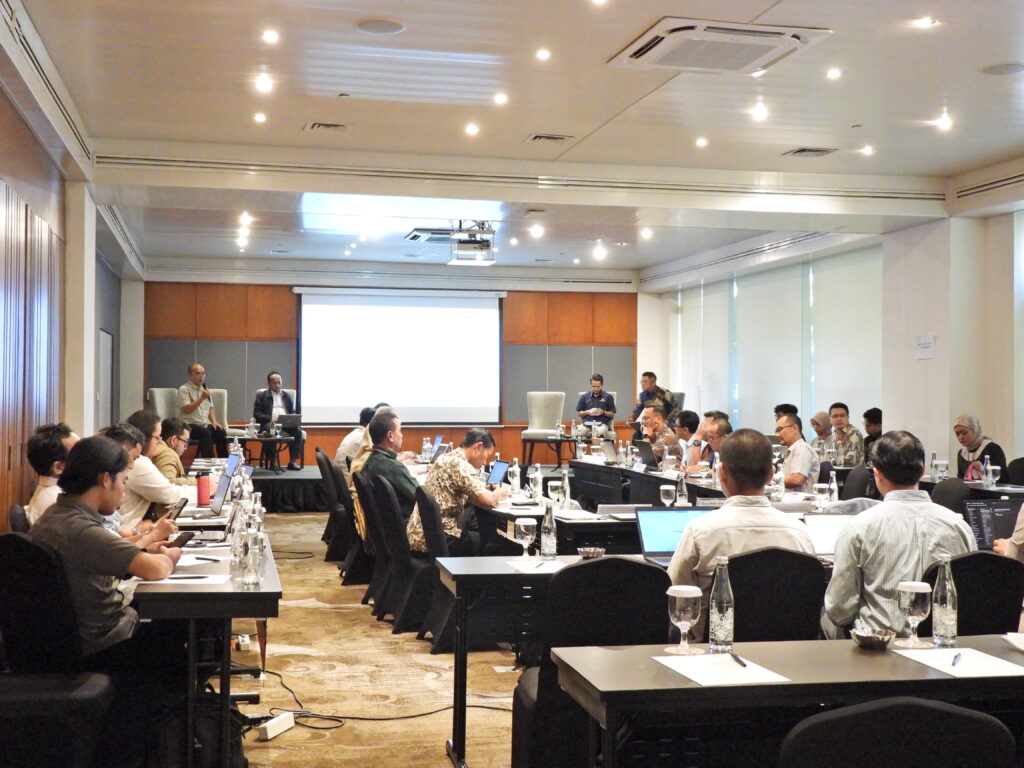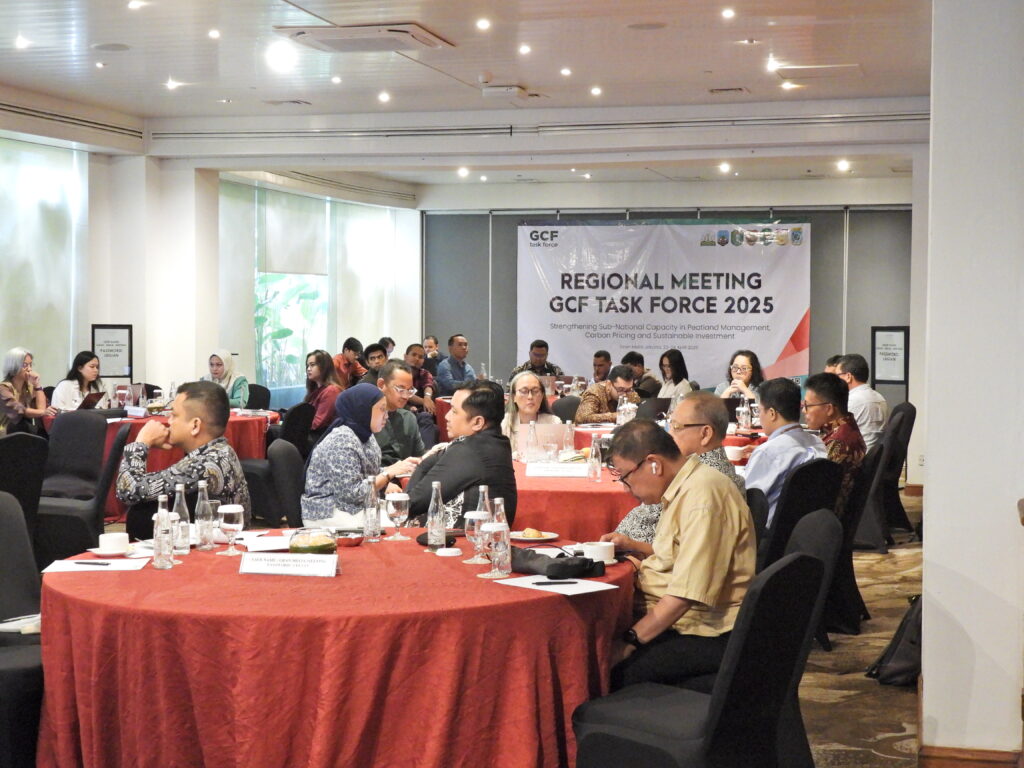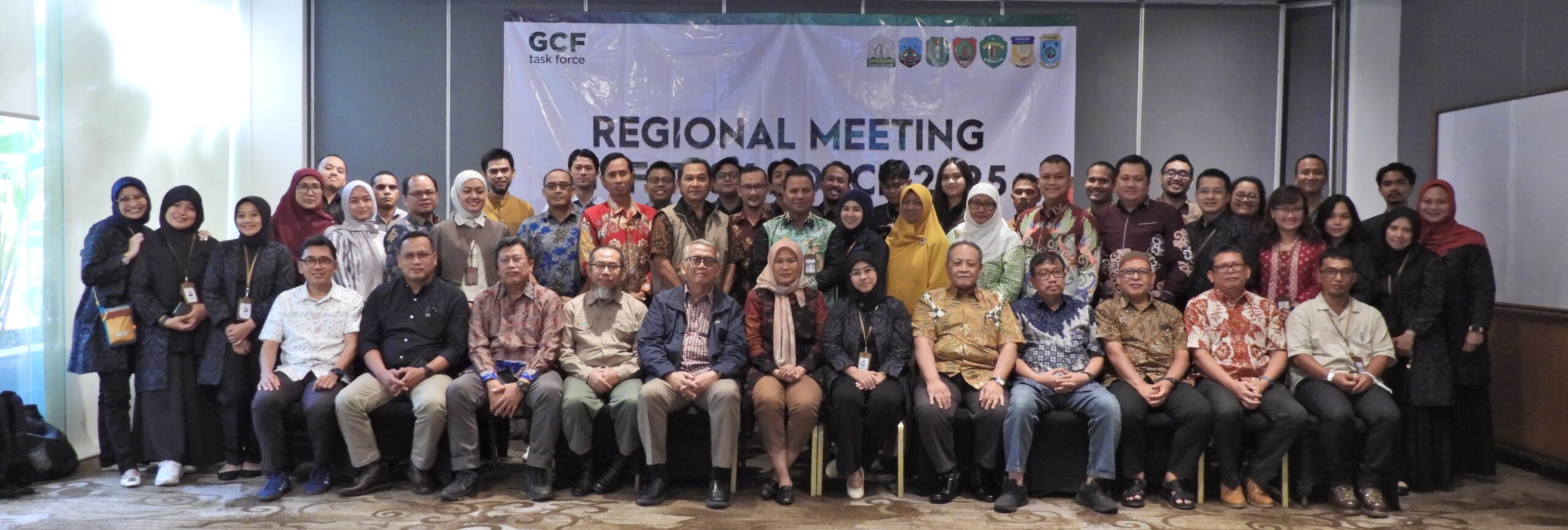“Strengthening Sub-National Capacity in Peatland Management, Carbon Pricing and Sustainable Investment” was the topic for the Governors’ Climate and Forests Task Force (GCFTF) Indonesia Regional Meeting organized from April 22-24, 2025, in Jakarta.
With simultaneous governor elections in 2024, all member provinces are adjusting to a new administration in their region. However, the objective of environmental conservation remains the same. All of them enthusiastically discussed possible measures to support a low carbon development pathway.
The first day of the meeting featured a collaboration between the GCFTF, GIZ ProPeat and GIZ SSTC SDG. This was part of a collaboration Technical Exchange on Peatland Management, where experts and provincial representatives shared their knowledge and experience in various aspects of peatland management, ranging from monitoring, policy development, community involvement, and peatland impacts on climate change. The exchange will hopefully be continued, not only between GCFTF member provinces in Indonesia, but with member from other regions.

The second day focused on financing climate change mitigation actions. A first session presented resource persons from the Ministry of Home Affairs, Ministry of Environment, and the Indonesia Environment Fund. The importance of leveraging diverse funding sources beyond public funds was emphasized, using various schemes as stipulated in Indonesia’s Carbon Pricing Policies. The panel also addressed carbon trading and emission offset mechanisms, highlighting the necessity of clear regulations and the accurate integration of data across various platforms such as SRN-PPI, Sign Smart, and AKSARA. Experiences of several provinces in accessing international climate funds was also shared, with East Kalimantan presenting its progress and challenges in implementing FCPF, particularly concerning the critical aspects of safeguards and benefit-sharing mechanisms. West Kalimantan detailed its process of accessing the Green Climate Fund funding, underscoring the significance of robust institutional frameworks and collaborative efforts. Additionally, Jambi and West Papua shared their respective experiences, emphasizing the vital roles of stakeholder engagement, the intrinsic value of biodiversity, and active community involvement.
The last day focused on Partner Engagement, where participants discussed potential collaboration under programs such as the Manaus Action Plan (MAP) and the New Forest Economy (NFE). Partners, including WRI, CLUA, LTKL, WWF, GIZ, CDP, and Rainforest Alliance shared their regional activities. Provinces also outlined their needs for support in areas like social forestry, NTFP development, and forest management.
All together, this was a very productive regional meeting to kick off GCFTF activities in Indonesia for 2025.


